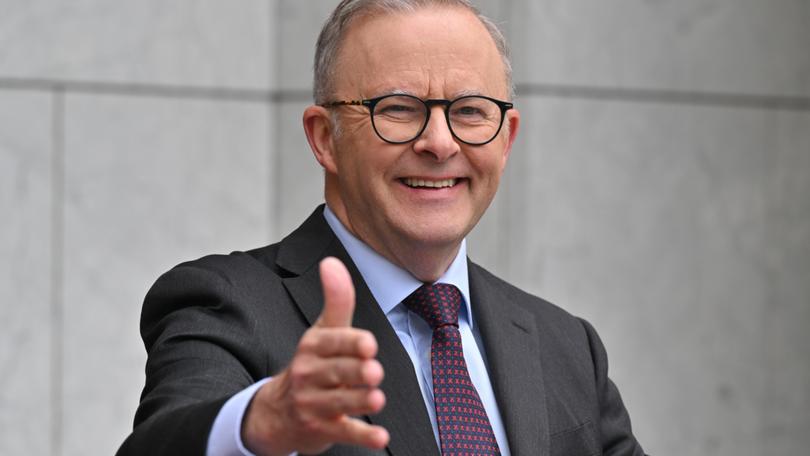By Peter Milne
Santos’ flagship Barossa gas project north of Darwin has hit another serious snag after a regulator intervened to stop construction of an offshore pipeline until concerns there could be Indigenous heritage sites along the route are addressed.
Traditional owner Therese Wokay Bourke welcomed the intervention of offshore environment regulator NOPSEMA just weeks before construction of the pipeline that would go within seven kilometres of the Tiwi Islands was to begin.
“This gives me a sense of relief because it means that our ancestral spiritual and cultural connection to underwater spiritual heritage will be preserved,” she said.

NOPSEMA directed Santos on January 13 to engage independent experts to assess if there are any sites along the 262-kilometre-long pipeline route that may have spiritual or cultural importance to Indigenous people and then if necessary adjust its plans.
Drilling in the Barossa gas field north of Darwin stopped in early October after Tiwi Islands traditional owner Dennis Tipaklippa won a Federal Court case over not being consulted when Santos prepared an environment plan for submission to NOPSEMA.
The latest complication to the 55 per cent complete project was instigated by a subsea archaeology expert’s report provided to Santos and NOPSEMA that concluded there was a significant chance of sites along the route that were significant to local Indigenous people, according to two sources with knowledge of the report but not authorised to speak to the media.
Santos is required to revise its plans when new risks to the environment – including cultural aspects – are identified without a direction from NOPSEMA, but the direction gives the regulator an easier path to legal action against any breach.
Santos has undertaken not to start pipeline construction until this is done, according to the NOPSEMA direction made public on Monday that in itself does not forbid construction to go ahead.
Environmental Defenders Office counsel Alina Leikin said the regulator’s decision recognised the pipeline posed significant risks to Tiwi cultural and spiritual heritage and required Santos to comprehensively assess those risks.
“We will continue to work closely with our Tiwi clients to ensure their rights are upheld and their cultural heritage, in all its forms, is preserved for current and future generations,” she said.
The latest setback to Santos’ flagship project comes at a sensitive time as a loan from the Korea Trade Insurance Corporation to SK to support its investment in 37.5 per cent of Barossa is understood to need to be renewed by Thursday, according to a Korean media report and number of sources not authorised to speak to the media.
Korea Trade Insurance Corporation and the Export-Import Bank of Korea which together loaned $US330 million ($470 million) to SK already have concerns about the high level of emissions the project will produce due to the carbon dioxide in the reservoir.
Santos was asked if the regulator’s action would delay the start-up of Barossa planned for the first half of 2025 and did not respond.
In December Santos planned for the specialised vessels required to lay the pipeline on the seabed to arrive in Darwin in late January to commence five to six months of work. The two vessels owned by Dutch company Allseas are now moored off Singapore according to vessel monitoring site MarineTraffic.
https://www.smh.com.au/interactive/modules/graphic-embed/?resizable=true&v=30&configUrl=https://www.smh.com.au/interactive/hub/configs/graphic-embed/13402.json
NOPSEMA inspectors reviewed Santos’ environment plan for the pipeline installation “at short notice” in late December, according to the direction, and identified more information was required about risks to underwater cultural heritage balance along the pipeline route.
A Santos spokeswoman said its environment plan for the pipeline was accepted by NOPSEMA in March 2020 following a full consultation process and all matters identified during the process were addressed.
“The pipeline installation is a low-impact activity involving the laying of pipe on the sea floor,” she said.
“There are no dredging or trenching activities.”
A NOPSEMA spokesman said while the environment plan remains in force it expected Santos would not undertake any work where risks haven’t been adequately identified and managed.
Both delays to Barossa have occurred to work that already had a plan accepted by the regulator.
Santos’ current pipeline environment plan only covers its original proposal for a pipeline from Barossa to join an existing pipeline from the Bayu Undan field in Timor Leste waters to Santos’ Darwin LNG plant that will be unused in a few months when production ceases.
In August 2022 Santos decided to pipe Barossa gas all the way to shore at an additional cost of $US622 million ($885 million) to leave the Bayu Undan pipeline available to send carbon dioxide to the disused gas field for storage.
The Barossa project is operated and 50 per cent owned by Santos, SK has a 37.5 per cent stake and Japan’s JERA owns 12.5 per cent.

